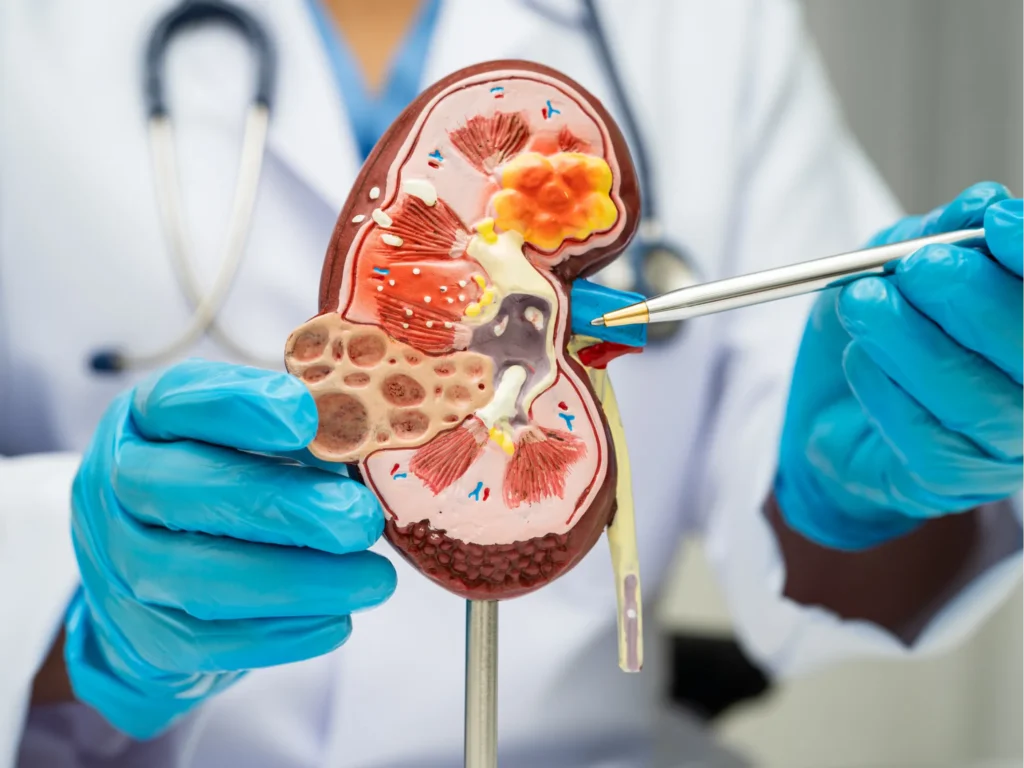You might not think about your kidneys every day, but they do a lot behind the scenes to keep you healthy. These two bean-shaped organs help remove waste from your body, control blood pressure, balance fluids, and even keep your bones strong. When your kidneys aren’t working properly, it can affect your whole body. That’s where a nephrologist comes in.
What Is a Nephrologist?
A nephrologist is a doctor who specializes in kidney health. They’re experts in diagnosing and treating kidney problems, from minor concerns to serious conditions like kidney failure. Nephrologists help manage long-term kidney issues and work to keep your kidneys as healthy as possible.
What Do Nephrologists Help With?
Nephrologists can help with a wide range of kidney-related problems, including:
- Chronic Kidney Disease (CKD): If your kidneys slowly lose function over time, a nephrologist can help you manage it and try to slow the damage.
- Kidney Failure: They can guide you through treatment options like dialysis or transplant if your kidneys stop working properly.
- High Blood Pressure: Your kidneys and blood pressure are closely connected.
- Kidney Stones: While they may not remove the stones, they can help you prevent them from coming back.
- Fluid Retention and Swelling: If you’re holding on to fluid in your legs, ankles, or around your eyes, your kidneys could be involved.
- Protein or Blood in Your Urine: These can be early signs of kidney trouble that shouldn’t be ignored.
When Should You See a Nephrologist?
Your primary care doctor might refer you to a nephrologist if your blood or urine tests show signs of kidney problems. You might also need to see one if:
- You have diabetes or high blood pressure, two of the main causes of kidney disease.
- There’s a family history of kidney problems, like polycystic kidney disease.
- You’ve had repeated kidney infections or kidney stones.
- You’re noticing swelling, especially in your legs, hands, or face.
- Your blood pressure stays high, even with medication.
- You feel unusually tired, weak, or nauseous, which can be signs of advanced kidney issues.
Why Early Action Matters
In its early stages, kidney disease usually doesn’t show clear symptoms, which is why many people aren’t aware they have it. That’s why regular checkups are so important, especially if you have risk factors like diabetes or high blood pressure. The earlier a nephrologist gets involved, the better your chances of slowing or even preventing serious kidney damage.
Need help with kidney health?
Talk to your doctor about a referral to a nephrologist or reach out to our clinic to schedule a consultation at 702-877-1887.
Final Thoughts
Your kidneys work hard for you every single day. If something goes wrong, you don’t have to face it alone. A nephrologist can help you understand what’s happening and support you with the care you need. If you’ve been told you might have kidney issues or want to stay ahead of any problems, don’t wait. Talk to your doctor or reach out to a nephrologist. Taking care of your kidneys today can make a big difference in your health tomorrow.
Stay informed and take control of your kidney health!
